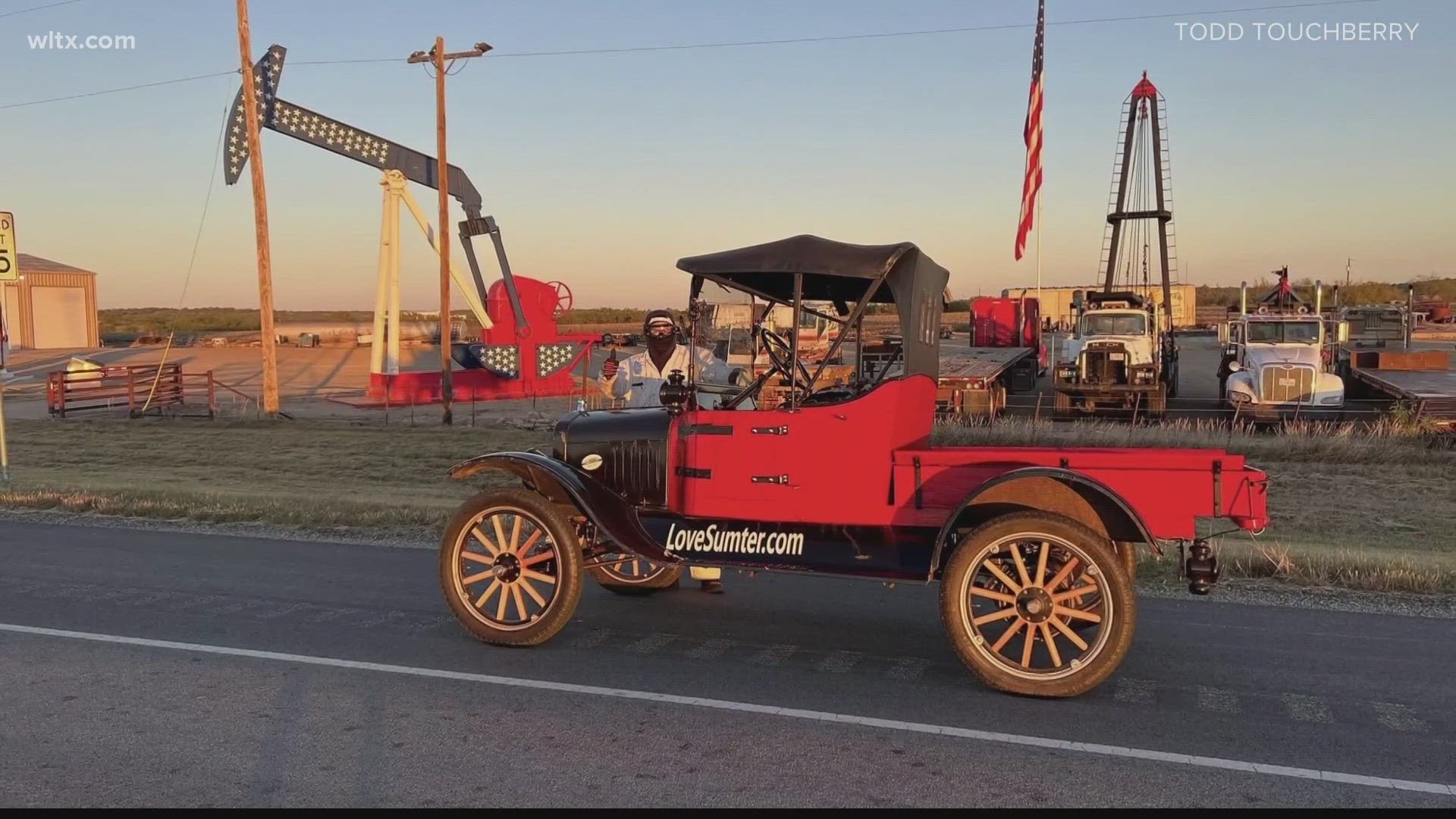SUMTER, S.C. — A group of Sumter residents have just returned after a 12-day trip driving across the country for a good cause. They traveled 29,000 miles from South Carolina to California in a 1920 Ford Model T to raise money and awareness about a neurological disorder while setting a modern-day record.
"When they crossed the finish line and put the flag on the beach and everything and laid it down, I started bawling my eyes out," Elizabeth Touchberry remembers watching her dad and step-mom on Facebook Live at the end of their journey. "When they were going across country, they were able to spread the word about hydrocephalus. And people were donating to that just because they didn't know what that was."
Elizabeth was born with the neurological disorder, which causes fluid buildup in her brain. It causes increased pressure, which she says can cause intense, long-lasting headaches and vision problems. As a result, Elizabeth says she's had 19 brain surgeries.
"It was so many different emotions," Elizabeth's dad, Todd, said about the cross-country trip. "But again, it wasn't for us. It was for the Hydrocephalus Association."
To honor his daughter and support others with hydrocephalus, Todd Touchberry prepared for 18 months to go coast to coast in a 1920 Ford Model T, followed by a trailer wrapped by the City of Sumter.
"Failing was the one thing I was nervous about, you know, because so many people were looking at us at this point," Todd explains.
People followed along the journey on social media, giving encouragement and donations, which Todd's wife Jennifer says kept them going.
"It was amazing. I mean, seeing Sumter come together and everybody just really supporting us. We had a lot of people that would message us, give us words of encouragement, pray for us. And everybody was so positive about it. They were just cheering us on. I think the adrenaline for the whole 12 days is what really pushed us through because everybody was so positive," Jennifer said. "And when we got on the road, people would kinda see what we were doing; they would scan the QR code, give us a honk or wave. And we got lots of attention on the road as well as people in Sumter, people in the hydrocephalus community, people just reaching out to all of us daily just giving us words of encouragement."
They started at Hunting Island State Park in Beaufort and traveled to Huntington Beach, California. State Sen. Thomas McElveen gave the team a South Carolina flag from the State House dome, which they planted at the beach at the end of their journey.
"Months ago, I downloaded and saved like seven or 800 songs to listen to because I figured I would get bored," Todd said. "I never listened to the first song. You know, because there was so much to take in and you know, at 35 miles an hour or 40 miles an hour, whatever we're going at a particular time, there was just so much to take in, especially when we're able to take the top down and just see things we'd never seen before. You know, it's nothing like South Carolina, and it's right here in America, and you don't have to get a passport to see it."
Todd says they raised about $28,000 and set a modern-day record for the fastest Model T cross-country trip in the last 100 years.
"Of course, you know, a trip of a lifetime and a dream that's always wanted to do, going across country in an old car," Todd's friend Patrick Lewis smiles. "And I couldn't say no."
Lewis came along on the trip, serving as the group's mechanic as they drove across the country at about 40 miles per hour.
"I think the most important thing that I've gained on that trip was four friends for a lifetime," Lewis tells me.
"I don't think a lot of people can say that they've seen the country at 35 miles an hour in a convertible," Jennifer said, laughing. "It was cool how we related to people on multiple levels. So it was like we related to car people, we related to people who have hydrocephalus, we related to people who have neurological disease, we related to people who have ties to Sumter, we related to people who were just cheering us on because they wanted to see how far we could go, we related to people, people who had never seen anything like this happen before. It was just like the avenues of people that we touched."
The group is still taking donations until Dec. 31 for the Hydrocephalus Association. If you'd like to donate, visit the campaign on JustGiving.com.

